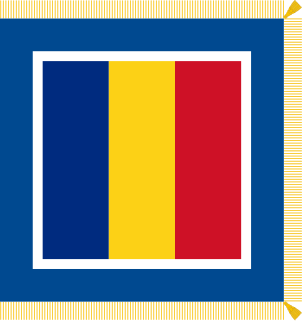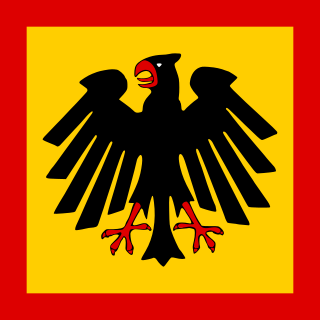
The politics of the Cook Islands, an associated state, takes place in a framework of a parliamentary representative democracy within a constitutional monarchy. The Queen of New Zealand, represented in the Cook Islands by the Queen's Representative, is the Head of State; the prime minister is the head of government and of a multi-party system. The Islands are self-governing in free association with New Zealand and are fully responsible for internal affairs. New Zealand retains some responsibility for external affairs, in consultation with the Cook Islands. In recent years, the Cook Islands have taken on more of its own external affairs; as of 2005, it has diplomatic relations in its own name with eighteen other countries. Executive power is exercised by the government, while legislative power is vested in both the government and the islands' parliament. The judiciary is independent of the executive and the legislatures.
Switzerland is a semi-direct democratic federal republic. The federal legislative power is vested in the two chambers of the Federal Assembly, the National Council and the Council of States. The Federal Council holds the executive power and is composed of seven power-sharing Federal Councillors elected by the Federal Assembly. The judicial branch is headed by the Federal Supreme Court of Switzerland, whose judges are elected by the Federal Assembly.

Direct democracy or pure democracy is a form of democracy in which people decide on policy initiatives directly. This differs from the majority of currently established democracies, which are representative democracies.

The President of Iceland is Iceland's elected head of state. The incumbent is Guðni Thorlacius Jóhannesson, who is now in his first term as president, elected in 2016.

The President of Romania is the head of state of Romania. The President is directly elected by a two-round system for a five-year term. An individual may serve two terms. During his/her term in office, the President may not be a member of any political party.

The Reichspräsident was the German head of state under the Weimar constitution, which was officially in force from 1919 to 1945. In English he was usually simply referred to as the President of Germany. The German title Reichspräsident literally means President of the Reich, the term Reich referring to the federal nation state established in 1871.
There are three types of elections in Denmark: elections to the national parliament, local elections and elections to the European Parliament. Referendums may also be called to consult the Danish citizenry directly on an issue of national concern.
In Ireland, direct elections by universal suffrage are used for the President, the ceremonial head of state; for Dáil Éireann, the house of representatives of the Oireachtas or parliament; for the European Parliament; and for local government. All elections use the proportional representation by means of the single transferable vote (PR-STV) in constituencies returning three or more members, except that the presidential election and by-elections use the single-winner analogue of STV, elsewhere called instant-runoff voting or the alternative vote. Members of Seanad Éireann, the second house of the Oireachtas, are partly nominated, partly indirectly elected, and partly elected by graduates of particular universities.
Estonia elects a legislature on the national level. The Riigikogu has 101 members, elected for a four-year term by proportional representation. A head of state - the president - is elected for a five-year term by parliament or an electoral college. Locally, Estonia elects local government councils, which vary in size. Election law states the minimum size of a council depending on the size of municipality. Local government councils are elected by proportional representation too.

A referendum on reducing the term length of Parliament from five to four years was held in the Cook Islands on 7 September 2004. It followed a referendum on the same subject in 1999 that was approved by a majority of voters, but not the two-thirds required to be passed. The proposal would amend article 37 of the constitution, which at the time read "The Queen's Representative shall dissolve Parliament at the expiration of 5 years from the date of the last preceding general election, if it has not sooner been dissolved." The change was approved by 82.27% of voters, passing the two-thirds threshold.

A five-part referendum was held in the Cook Islands on 24 March 1994. Voters were consulted on retaining the country's name, flag and national anthem and seats in parliament for overseas Cook Islanders, as well as whether the term of Parliament should be three, four or five years.

A six-part referendum was held in Palau on 2 November 2004 alongside the country's general elections. Voters were asked questions on summoning a Constitutional Convention, payment of members of the National Congress, creating a unicameral Congress, term limits for Congress members, election of the President and Vice President and dual citizenship. All proposals were approved except the unicameral Congress, which despite receiving a majority of the public vote, did not meet the quorum of 12 of 16 states required for amendments to the constitution.

A constitutional referendum was held in Uruguay on 29 November 1942, alongside general elections. The new constitution was approved by 77.17% of voters.

A four-part referendum was held in the Federated States of Micronesia on 1 July 1999. Voters were asked whether a constitutional convention should be called, whether they approved of a proposal on the distribution of revenues from the country's exclusive economic zone (EEZ), whether the amount of tax revenues distributed to the states should rise from 50% to 70%, and whether states should be given exclusive ownership of their natural resources. The latter three had originally been planned to be held alongside the parliamentary elections in March, but were postponed due to a lack of funds to print the ballot papers.

A constitutional referendum was held in the Federated States of Micronesia on 27 August 2002. Voters were asked whether they approved of 14 separate amendments to the country's constitution. To be approved, the proposal required at least 75% of voters in at least three of the four states to vote in favour. Ultimately all 14 proposals were rejected, as none passed the 75% threshold in any state.

A three-part referendum was held in the Northern Mariana Islands on 6 November 1993. Voters were asked whether they approved of two constitutional amendments regarding collective land ownership of native islanders and the veto powers of the Governor, and whether a Constitutional Convention should be elected. All three proposals were approved by voters.

A twenty-three-part referendum was held in Palau on 4 November 2008 alongside the country's general elections. Voters were asked questions on requirements of citizenship to hold office, government provision of primary school and health care, the definition of marriage and term limits for Parliament. Only the proposal permitting naturalization for certain adoptees failed to obtain the requisite majority of the vote and majority in 3/4th of the states.

A series of referendums on the proposed constitution of Australia were held between 2 June 1898 and 31 July 1900 in the six colonies that were to become the states of the Commonwealth of Australia. The first four referendums were held in New South Wales, South Australia, Tasmania and Victoria in June 1898. Although all four saw a majority vote in favour, the majority in New South Wales was insufficient. Knowledge of the result in New South Wales led to low voter turnout in South Australia.
A referendum is a direct vote in which an entire electorate is asked to either accept or reject a particular proposal. This article summarises referendum laws and practice in various countries.











